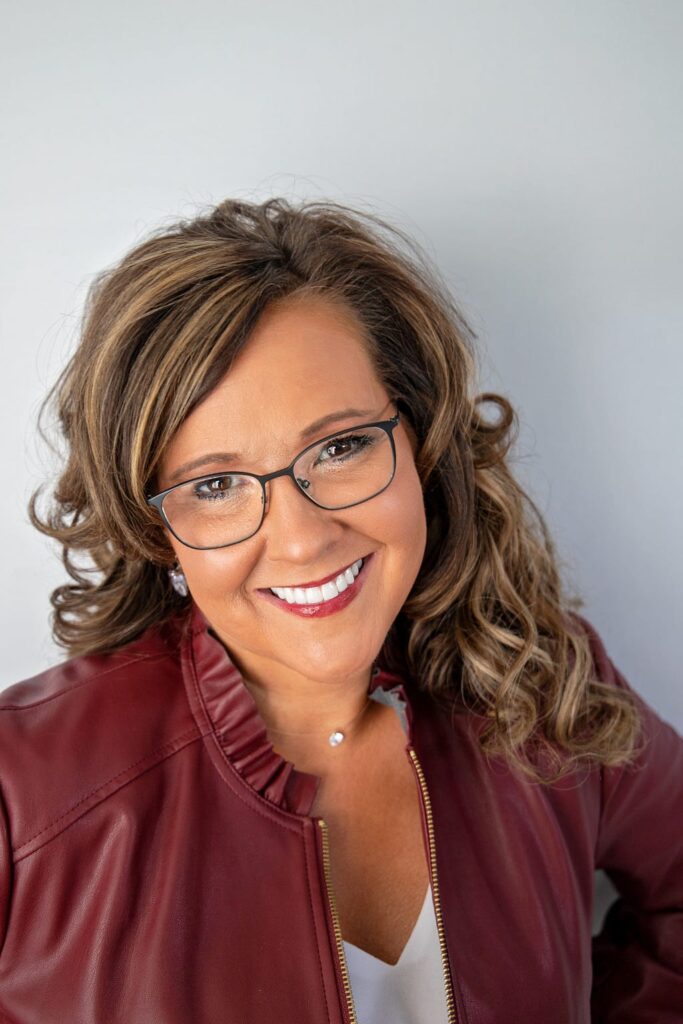An Interview With Jake Frankel
Electronic Medical Record improvements
For the patient having medical records that transfer among providers is essential. There are still barriers to sharing medical information in an efficient manner. For me and my son this has led to duplication of tests due to results not being available to providers.
As a part of our interview series called “5 Things We Must Do To Improve the US Healthcare System”, I had the pleasure to interview Melissa Winger
Melissa Winger is dedicated to transforming the healthcare industry by putting patients first. As a passionate advocate, speaker, and healthcare quality professional, Melissa brings nearly three decades of firsthand experience navigating the complexities of the medical system — both as a mother to a son with severe developmental disabilities and as a professional in patient experience and healthcare quality.
Thank you so much for joining us in this interview series! Before we dive into our interview, our readers would like to get to know you a bit. Can you tell us a story about what brought you to this specific career path?
At just 18 years old, Melissa’s world changed when she gave birth to her son, who was born with a cleft palate and later diagnosed with an extremely rare chromosomal disorder — so rare that he remains the only known person with this specific genetic anomaly. From the moment he entered the world, Melissa was thrust into a system that often failed to provide the care, compassion, and accountability that every patient deserves.
Can you share the most interesting story that happened to you since you began your career?
As a patient advocate, I have volunteered to serve on many boards and committees, however in 2019 I decided to write a book on the patient experience across all dimensions of our healthcare system. The book took over 4 years to write but so far has been my greatest accomplishment.
Can you share a story about the funniest mistake you made when you were first starting? Can you tell us what lesson you learned from that?
When I got my first opportunity to sit on a healthcare advocacy board at the age of 19, we planned a holiday party. Unfortunately, I did not realize, nor did anyone else, that the place we chose to have our party was in a private room of a bar. At the age of 19, I was underage and not allowed into the party.
I learned to be cautious of the needs of any member of advisory boards and the unique circumstances of everyone to ensure a welcoming experience.
Can you please give us your favorite “Life Lesson Quote”? Can you share how that was relevant to you in your life?
The true measure of any society can be found in how it treats its most vulnerable members –
Mahatma Gandhi
This quote reminds me to keep fighting for those who cannot fight for themselves.
How would you define an “excellent healthcare provider”?
A provider who shows genuine care and empathy.
The title of my book is from an emotional interaction with my sons pediatrician where he asked “what do you want me to do?” my eyes welled up with tears and I said “I want you to care”
I felt if providers care they will go a step further to ensure we were taken care of.
What are your favorite books, podcasts, or resources that inspire you to be a better healthcare leader? Can you explain why you like them?
Any documentary that highlights the history of persons with disabilities. The Minnesota Governors Counsel for Development Disabilities website https://mn.gov/mnddc/ has an extensive collection of stories revealing the shocking mistreatment of people with disabilities, that still occurs today.
This collection of stories inspires me to change the system not only for my son, but for all persons with disabilities.
Are you working on any exciting new projects now? How do you think that will help people?
I am currently doing a podcast tour promoting my book and to talk with others who share my passion for healthcare reform and disability rights. I believe by continuing the conversation and sharing stories we can join forces for change.
Ok, thank you for that. Let’s now jump to the main focus of our interview. According to this study cited by Newsweek, the US healthcare system is ranked as the worst among high-income nations. This seems shocking. Can you share with us a few reasons why you think the US is ranked so poorly?
I believe the underfunding of our government payors, Medicare and Medicaid, can be a significant contributor to the high cost / low quality healthcare system. These systems have low reimbursement rates to providers that cause many to not accept patients with these plans. However, those that do take these plans get paid significantly less they then need to recoup dollars from private payors.
When we look at these plans and the underfunding this can lead to accessibility issues for patients. Often patients on government healthcare are often the ones that need healthcare the most and cannot access quality care. In turn, patients will delay care, or seek care in an inappropriate setting such as emergency room visits for a condition that could be treated in a primary care office.

As a “healthcare insider”, if you had the power to make a change, can you share 5 changes that need to be made to improve the overall US healthcare system?
1 . Redesign the long-term health system.
My son has been in a long-term care facility for 5 years and has suffered abuse and neglect in the group home setting. These incidents caused hospitalization, pain and suffering that was 100% preventable.
After extensive research I discovered some studies estimate over $2.5 billion per year in Medicare hospital costs alone due to adverse events in nursing homes.
Causes for neglect and abuse in long term care often are often linked to staffing. Care facilities are often understaffed, and caregivers are not given proper training and resources to give proper care to patients.
I believe these issues are due to the underfunding of government payors to provide adequate care.
2 . Electronic Medical Record improvements
For the patient having medical records that transfer among providers is essential. There are still barriers to sharing medical information in an efficient manner. For me and my son this has led to duplication of tests due to results not being available to providers.
3 . Quality over quantity
My son’s chromosome disorder has caused issues with every single organ system. We make decisions based on the test or procedure being recommended and what we are going to do with the results. If a test is being recommended just “to know ” but the treatment plan will not change then we often do not proceed with the test. This should be the standard for any medical decision-making conversation with a patient.
4 . Patient voice in every aspect of healthcare
The patient experience is a vital component in any healthcare process or system. If we go beyond a standard survey and bring the patient or patient family to the table, we can identify areas for improvement. This could include website design for a clinic or hospital to actual physical space remodeling. It is hard to design a hospital room when you do not actually live in one, but many patients and their families have spent significant time there and can be a valuable resource.
5 . Patient value and respect
We claim to have a patient centered medical system however in many ways we are still system centered. For example, many clinics have a late patient cancellation policy. This is where if the patient is more than 10 minutes late they are not able to be seen. If this was an appointment for an acute condition, we would then go to the emergency room. However, when the provider is running behind by much longer than 10 min the patients must comply. By showing respect by notifying patients when a provider is running late and offering an apology can go a long way.
What concrete steps would have to be done to actually manifest these changes?
a) individuals- educate yourself by learning about the healthcare system and then advocate for change,
b) corporations- Develop policies and procedures that focus on the value to the patient.
c) communities — In terms of people with disabilities being neglected or abused, do not look away. Report the incident and be the voice for those who do not have the ability to advocate for themselves. d) leaders- Bring patient to the table when doing any improvement project they have valuable insight.
The COVID-19 pandemic has put intense pressure on the American healthcare system, leaving some hospital systems at a complete loss as to how to handle this crisis. Can you share with us examples of where we’ve seen the U.S. healthcare system struggle? How do you think we can correct these issues moving forward?
The one mistake we made is by eliminating all visitors. While important for infection control the harm outweighed any benefit. As a mom of a son with complex needs , when he was hospitalized I often chose to provide all his cares during inpatient stays this could have been helpful for staffing.
We also put patients in traumatic situations by having to suffer an illness alone or even dying without any loved ones around them.
How do you think we can address the problem of physician shortages?
Provide incentives for primary care physicians such as reduction in student loans for rural primary care.
How do you think we can address the issue of physician and nurse burnout?
Reducing the number of regulatory burdens that provide no patient value. Providers can be spending more time with administrative tasks then actual patient care.
You are a person of great influence. If you could inspire a movement that would bring the most amount of good to the most amount of people, what would that be? You never know what your idea can trigger. 🙂
I am passionate about reducing vulnerable adult abuse and neglect. Are senior citizens are a large portion of our society and we must care for them with the utmost respect and dignity.
How can our readers further follow your work online?
Website: www.whocaresbooks.com
Thank you so much for these insights! This was very inspirational and we wish you continued success in your great work.
Advocate & Speaker Melissa Winger On 5 Things We Must Do To Improve the US Healthcare System was originally published in Authority Magazine on Medium, where people are continuing the conversation by highlighting and responding to this story.
